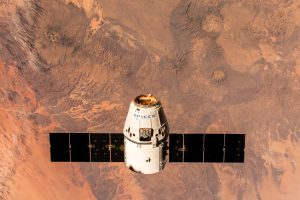On December 11, Indonesian President Joko “Jokowi” Widodo reportedly broached the possibility of Indonesia serving as a launch site for U.S. aerospace manufacturer and space company SpaceX during a call with CEO and renowned entrepreneur and innovator Elon Musk. Though the proposal itself is not surprising given Indonesia’s desire to seek foreign investment opportunities, the future prospects of this venture remain unclear.
Attracting more foreign investment into the country has continued to prove challenging for Indonesia in the last few years, and even more so by the government’s own admission with the onset of the global coronavirus pandemic. Yet the Jokowi government has continued to signal its interest in exploring collaboration with a range of companies and interested investors, and Musk has featured in those conversations.
Of particular note is Indonesia attempting to position itself as a major producer of lithium batteries, a key component in electric vehicles, by leveraging the country’s large nickel reserves. Musk, who is the CEO of electric vehicles maker Tesla, has been touting large contracts for mining companies worldwide willing and able to increase their nickel production, and reports publicly surfaced earlier this year about a possible venture between the firm and the Indonesian government.
Seen from this perspective, the call last week represented a continuation of Indonesia’s efforts to engage Musk on potential areas of cooperation. The official statement published by the office of the Coordinating Ministry for Maritime and Investment Affairs, headed by Jokowi’s close adviser Luhut Pandjaitan, noted that the December 11 call between Jokowi and Musk had featured some previous areas of collaboration, including on electric cars. But understandably, the media focus was on the newer component, which was an invitation by Jokowi to Musk to assess Indonesia’s potential as a launch pad for SpaceX.
The exact scope of potential Indonesia-SpaceX collaboration remains unclear at this stage. Indonesia’s own domestic space infrastructure still remains quite underdeveloped, in spite of some cooperative ventures that have taken shape over the past decade in specific areas such as satellite technology, which has taken place with foreign partners. And though there have been some strides made in developing technological knowledge and technical expertise, there continues to be concerns about the sustainability of government prioritization over the longer term.
Nonetheless, past linkages have existed between Indonesia and SpaceX, including in 2018, when SpaceX launched an Indonesian satellite into orbit using its Falcon 9 rocket from Cape Canaveral Air Force Station in Florida. Indonesia has also been looking for partnerships as it makes inroads in its own domestic priorities, including the development of spaceports by the National Institute of Aeronautics and Space (LAPAN).
More clarity could be forthcoming in the next few months, with suggestions that Musk could send a team to Indonesia in January 2021 to study partnership plans. As such interactions take shape, any collaboration that could take off between Indonesia and SpaceX, along with the domestic development of Indonesia’s own domestic capabilities, will be important to watch heading into 2021 and beyond.

































